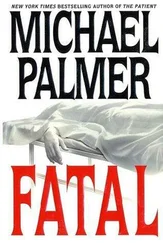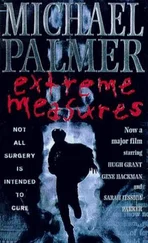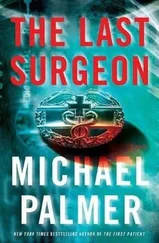Ellis smiled once more. Suddenly, her brilliant young aide looked very much his age.
“I’m sure,” she said, “when Congress learns that if they don’t vote for this bill they’ll all die, mocking me will be the furthest thing from their minds.”
“I’m still not completely certain I understand,” Gladstone said, averting his eyes. “With all due respect, Madam Speaker, are you sure you know what you’re doing here?”
Ellis understood why the question had been so difficult for him to ask. The child who loses faith in the parent also loses hope. She placed a reassuring hand on his shoulder.
“Leland, I have never been more sure of anything in my life. Why do you think it was me whom Genesis singled out? Of all the members of Congress and the Cabinet locked in here, why was I the chosen one?”
“I don’t know—because you’re the speaker of the house, I suppose.”
“Nonsense.”
Ellis glanced cautiously about the vast chamber, aware of the danger should they be overheard. In every direction, she saw only idleness, helplessness, and ennui. People fidgeted in their seats, frustrated, bored, and restless. Some had converted blankets into makeshift pillows and were leaning against the person next to them. Clusters of dignitaries congregated together, but fatigue and mounting fear had sapped much of their energy and dampened what had once been animated chatter into nothing more than scattered whispers. To Ellis they looked like the living dead. Which, according to Genesis, they were.
“They picked me because it’s my destiny to lead,” she responded finally. “And with your help, the world will soon see the mistake they made by not choosing me over Allaire in the first place.”
“By my help, you mean by my drafting this bill?”
“That is precisely what I mean, Leland. As soon as you have completed that task, I’ll introduce it to Congress and we’ll get it voted on and passed.”
“But … but even if you get the bill through Congress, Allaire will never sign it into law,” Gladstone said. “Isn’t that a prerequisite for Genesis giving you the antidote?”
Ellis patted her aide on the knee. His political acumen was, in many respects, far beyond his years, but in other aspects, he was still a babe in the woods.
“Thanks to the power Genesis is about to give us, our special committee work is going to be fast-tracked. Soon we’ll have enough proof to impeach Allaire.”
“Even assuming you can get Allaire out of the picture, Vice President Tilden will step in and veto the bill just the same.”
“Well, you just leave the little stumbling block of Henry Tilden to me,” Ellis said. “I assure you, he will be an impediment easily overcome.”
“So you plan to impeach Allaire for Mackey’s murder?”
Ellis grinned.
“That I do, my friend. Mackey’s death, and how about seven hundred plus counts of attempted murder.”
“And you believe the threat from this virus is as grave as Genesis claims it is?”
Ellis pointed a finger at Gladstone to emphasize that the issue he had hit upon was a significant one.
“I’ve been pondering that very question myself,” she said. “Let me ask you something: Why do you think Allaire had us all separated into groups?”
“To help manage the distribution of resources during the quarantine period,” Gladstone replied quickly.
“Ah, dear Leland. That explanation sounded lame to me when Allaire tried to foist it on us in the first place, and it sounds as lame as a three-legged hog now. Assuming it is just another one of his lies, I ask you to reason out why we were sent to different rooms.”
Gladstone had to think only briefly.
“Assuming the threat is real, and Allaire knows how deadly it is, then he might be attempting to control the spread of the virus.”
“Now you’re cooking, Leland. And how would that best be done?”
For the first time, Gladstone firmly met Ellis’s gaze with his own.
“By separating out the most severely infected.”
Ellis’s expression was that of a proud teacher toward her star pupil.
“Do you recall,” she said, “how I asked you to map out where the explosions had occurred, and who was sitting in each area?”
“Of course.”
“Let’s look at that list.”
Gladstone stretched his long legs to extract several folded pieces of paper from the front pocket of his tuxedo pants. Then he handed the sheets to Ellis. The speaker carefully read them over, folded them again, and returned the stack to him.
“You have about forty names here,” she said.
“Those are the ones I could get. People at the center of the blasts, including those seated next to, in front of, or in back of each ground zero.”
“And tell me, do you know the present location of Archibald Jakes, or Senator Cogan?”
Ellis picked two names from Gladstone’s list that she had personally seen take a hit.
“I believe they’re in C Group.”
“Have you had any contact with C Group?”
“No,” Gladstone said.
“And do you know where Group C is currently residing?”
“From what I’ve heard, they’re in the Senate Chamber, but that’s just rumor and not something I’ve confirmed.”
“In that case, I think I should go and confirm it for myself. Is your BlackBerry charged?”
“It is,” Gladstone said. “Thanks to your standing up to Allaire, I still have it.”
“You look troubled, Leland. What is it?”
“You’re not allowed to leave this chamber. How do you plan to get across the Capitol complex to the Senate?”
Ellis favored Gladstone with a mischievous smile.
“Because of Sean O’Neil’s … um … not so minor transgressions, I still have my hand cupped around his balls. I think it’s about time I gave them a good, hard squeeze.”
DAY 6
2:00 A.M. (EST)
From the recesses of the upper gallery, Ellis watched Sean O’Neil patrol the aisles of the House Chamber. He looked ill at ease, and avoided any eye contact with the anxious faces that he passed, perhaps feeling as if he were being held responsible in some way for their plight.
Ellis felt some pity for the man. He was at once prisoner and jailer, neither of them very enviable positions. At least amid this mess, she had a purpose—some control and power over her fate. Soon enough, though, O’Neil would have some purpose as well. And once Allaire and his vice presidential toady were put in their places, once she was president, she would reward the Secret Service agent’s assistance by keeping him on staff, pledged to take a bullet for her.
The speaker descended the carpeted stairwell to the chamber floor level, approached O’Neil from behind, and tapped him on the shoulder. He spun around, reaching for his gun.
“Easy, cowboy,” she said. “Maybe it’s time to switch over to decaf.”
O’Neil glared at her.
“Next time you come up on me like that, don’t expect me to stop.”
“We need to talk,” Ellis said.
“I’m busy right now.”
“Oh? Doing what?”
“The president asked me to make some observations and report back to him.”
“Observations?”
“Check and see how people are holding up.”
“Oooo. Sounds important.”
“What do you want?”
“I told you, to talk. Please?”
Ellis motioned to a dark corner where she felt assured they’d have a modicum of privacy. O’Neil grumbled an unintelligible protest, but followed her anyway.
“Okay,” the agent said, when it seemed they were safely out of earshot of others, “what do you want to talk about?”
“Where is Archibald Jakes?” Ellis asked.
“The Navy chief of staff?”
Читать дальше












